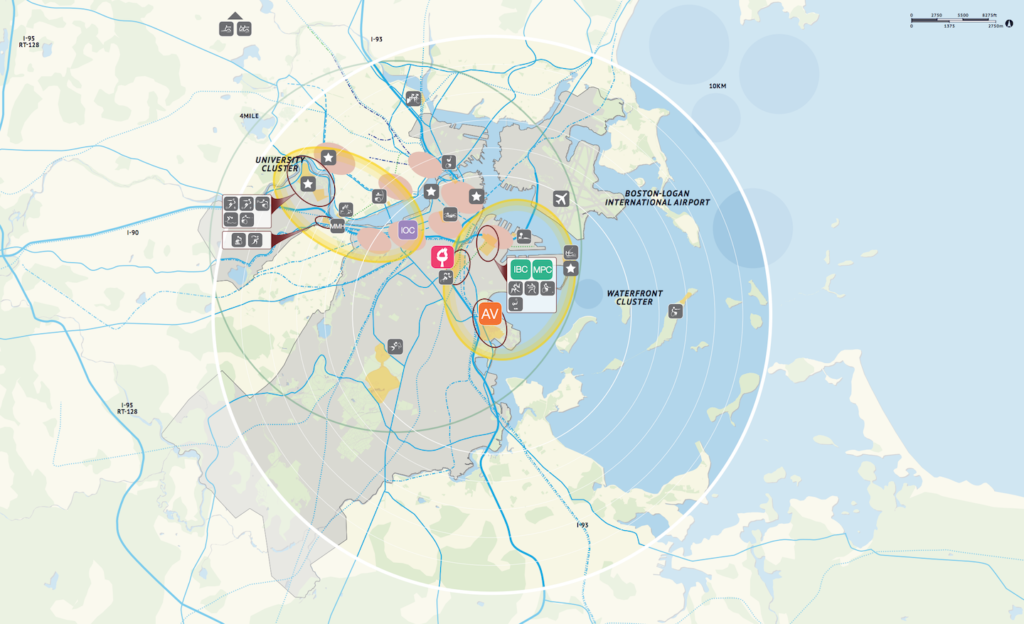By William Bryan, news correspondent
Emotions are mixed after the announcement that Boston is the US Olympic Committee’s choice for the Summer Olympic Games in 2024.
The decision, announced on Jan. 8, marks the beginning of a long process of proposals by organizations and votes by Boston residents to determine if the city will be in the running for the 2024 Olympic bid. This process will continue until 2017, when the International Olympic Committee makes a final decision regarding the future host city.
“Today marks the start of a long process to meet with residents and solicit feedback from our many diverse neighborhoods as we move forward in our quest to host the 2024 Summer Olympics,” Mayor Martin J. Walsh said during a press conference on Jan. 9.
Organizations like Boston 2024 have started creating plans to respond to the infrastructural burden and financial commitment that hosting the Games implies.
According to Boston 2024’s website, “the Commonwealth is an avid sports hub and has many venues suitable for various Olympic events. In addition, the Greater Boston Area already exceeds the International Olympic Committee’s requirements for hotel accommodations.”
Boston 2024 asserts that Boston is well-equipped for many of the events that are held as part of the Olympics. However, several new venues need to be built: an Olympic Stadium to host the opening and closing ceremonies, a velodrome and an aquatics center as well as an Olympic Village to house the athletes.
Plans have suggested temporary structures to avoid the fate many Olympic constructions face: decay and disuse.
According to an article by the Boston Globe, temporary structures like the ones that have been proposed don’t always lead to tangible cost benefits. Often, the only money saved by building venues comes from eliminating maintenance spending after the Games.
Groups like No Boston Olympics are advocating strongly against the Games being held in Boston.
“The bid is a mistake because it forces you to build a bunch of stuff that you don’t need in the hopes that you build a few things that you do need,” Christopher Dempsey, a leading member of No Boston Olympics, said.
According to Dempsey, every Olympics since 1960 has gone over its budget, making it unlikely that an Olympic games held in Boston would stay below the proposed $9.5 billion budget.
The City of Boston’s annual budget is $2.7 billion.
Money spent on Olympic events hosted in the United States must come from private funding. However, that only includes money that is used for Olympic-specific venues. Funds for transportation and infrastructure upgrades would be taken from public funding.
“Primarily what will happen is there will be a mountain of debt that has to be paid off over 20 or 30 years that will crimp the budget,” Andrew Zimbalist, an economics professor at Smith College in Northampton and author of the newly released “Circus Maximus: The Economic Gamble Behind Hosting the Olympics and the World Cup,” said.
Cities also use the games to spur economic growth, while in reality they often lead to a disparity in tourism.
“The Olympics will have a negative economic impact even for the three weeks when they’re in town,” Dempsey said. “It pushes out other economic activity. [Cities] actually have fewer tourists during the time when the Olympics are taking place.”
If Boston hosts the Olympic events, those who would typically visit Boston during the summer months of 2024 may avoid the city because of the overcrowding, prices and stricter security. According to Zimbalist, during the 2008 Summer Olympics in Beijing, the number of foreign arrivals dropped by 30 percent.
Although experts have warned of the many risks of hosting the Games, some businesses still benefit from the event.
“The one industry that unequivocally benefits would be the construction industry,” Zimbalist said.
Despite some experts’ opinions that hosting the Olympics would be harmful to the local community and economy in Boston, past host cities feel that it helped their economy in the long term.
According to Salt Lake City’s Chamber of Commerce website, hosting the Winter Olympics in 2002 had an economic impact that was “remarkable.”
The website also states that the Utah economy benefited from “$4.8 billion in sales, 35,000 job years in employment and $1.5 billion in earnings for Utah workers.”
The Games improved the infrastructure as well, benefiting Salt Lake City. Some of the changes that have helped Salt Lake City after the Games include student housing, transportation, lodging and local sport venues.
Walsh has announced his support for the Games and hopes to spur a thoughtful discussion about the possibility of holding the event.
“I am excited to share our vision with the people of Boston and hear their thoughts on how we can work together to not only bring the Games to Boston, but create one of the most innovative, sustainable and successful Olympics the world has seen,” Walsh said.
Boston will hold its first of nine public meetings to consider its Olympic bid on Jan. 27 at 6:30 p.m. at Suffolk Law School, 120 Tremont St.
“It is an exceptional honor for Boston to be chosen as the US representative in the running for the 2024 Olympic and Paralympic Games,” Walsh said. “This selection is in recognition of our city’s talent, diversity and global leadership. Our goal is to host an Olympic and Paralympic Games that are innovative, walkable and hospitable to all. Boston hopes to welcome the world’s greatest athletes to one of the world’s great cities.”
Photo courtesy Boston 2024








![A demonstrator hoists a sign above their head that reads, "We [heart] our international students." Among the posters were some listing international scientists, while other protesters held American flags.](https://huntnewsnu.com/wp-content/uploads/2025/06/image12-1200x800.jpg)






